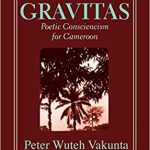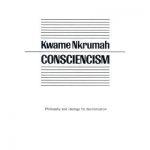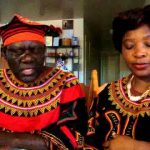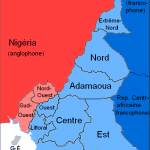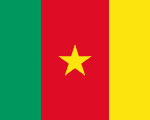Paul Biya, President of Cameroon. Source: Wikimedia.
Due to the limits of our historiography, little is known about Cameroon - and many other African countries - before European colonization. Although European settlements have been present in Cameroon since the 1840s (Rudin, 1938: 18), the first nation to colonize Cameroon is Germany. Starting in 1884, the Germans ruled the colony they called Kamerun, named after the Portuguese word for shrimp - camarão - as the rivers running through the country supposedly carried an abundance of this species (Rudin, 1938: 102). The Germans focused on trade and plantations, and cared little for assimilation, as they "were in a very high degree considerate of native practices and customs" (Rudin 1938: 299). German colonization of Cameroon was not to last long, since the effects of World War I stripped Germany of its colonies.
In 1919, the territory occupied by German Kamerun became a League of Nations mandate. In its name, Britain controlled 1/5th of the region and added it to their Nigerian territory; France ruled the other 4/5ths as an independent mandate. British Cameroon constituted an underdeveloped part of Nigeria, as the region occupied "a peripheral position as a 'colony of a colony'" (Konings and Nyamnjoh, 2003: 25). The underdevelopment and feeling of still being colonized persists into the contemporary Anglophone community (Konings and Nyamnjoh, 2003: 154).
The division of German Kamerun into French and British parts constitutes the basis of the Cameroon Crisis. According to historians of Cameroon Piet Konings and Francis Nyamnjoh, two separate Cameroonian identities - one Francophone, one Anglophone - were constructed due to "separate colonial state formation and the development of territorial differences in languages and cultural legacies" (Konings and Nyamnjoh, 2003: 10). Despite these differences, an idea of Cameroonian reunification existed since the 1940s, but this "remained a vague ideal towards which few steps were being taken" (Konings and Nyamnjoh, 2003: 26). This was in part due to internal differences within British Cameroon: some British Cameroonians argued that they should stay with Nigeria, some were in favor of Cameroonian reunification, and even others wanted Anglophone Cameroon to become an independent nation all on its own. The biggest and most influential groups were the first and the third, the second never being seriously considered (Konings and Nyamnjoh, 2003: 27-32).
Despite disagreements, discussions continued, and the issue of reunification became a serious political issue. In 1959, the Anglophone pro-reunification Kamerun National Democratic Party (KNDP) won the parliamentary elections that would decide the future of the region. In combination with the UN, a plebiscite was organized in which Anglophone Cameroonians could choose between reunification with French Cameroon and integration into Nigeria. The people favored reunification, and on 1 October 1961 the Federal Republic of Cameroon was born, which included the Anglophone and Francophone regions. While the people showed a preference for reunification, "the campaign clearly demonstrated that most Southern [i.e., Anglophone] Cameroonians found neither of the two alternatives acceptable" (Konings and Nyamnjoh, 2003: 49). Reunification was thus not a decision for a bright future, but rather a preference of the lesser of two evils. It is thus impossible to speak of real "reunification," since this implies a return to a state of cohesive union. This is not the case for Cameroon, as the state to which is being returned is itself an arbitrary colonial creation.
Upon "reunification," different Anglophone and Francophone Cameroonian identities existed. This sense of difference increased as Anglophones felt unequally treated and discriminated against. This feeling was even present at the very moment Cameroon was united, as the French majority decided the stakes and circumstances of the reunification negotiations (Konings and Nyamnjoh 2003: 49). Once unified as the Republic of Cameroon, then-president Ahmadou Ahidjo, seen by many as a neo-colonial French puppet (Teretta, 2007: 82) "gradually and cautiously undertook the realization of his ultimate goal: the establishment of a strong, unitary state" (Konings and Nyamnjoh, 2003: 51). This was contrary to the wishes of the Anglophone population, who wanted to retain a large degree of autonomy. While referenda were being held among the British Cameroonian population, these were mostly symbolic, giving Anglophone Cameroonians, "a choice between a ‘Oui’ and a 'Yes'" (Bayart 1978: 89). Eventually in 1972, the Federal Republic of Cameroon became the United Republic of Cameroon and ceased to be a federation, thus creating a more centralized form of rule.
This strengthened a feeling "among Anglophones that their community with its distinct colonial legacy was subject to marginalization, exploitation and assimilation by the Francophone-dominated state and even by the Francophone population as a whole" (Konings and Nyamnjoh, 2003: 51-52). Seemingly adding insult to injury, Paul Biya, Ahidjo's successor, "without warning or consultation, changed the official name of the country from the United Republic of Cameroon to simply the Republic of Cameroon - despite vehement Anglophone protests that this was the name of independent Francophone Cameroon prior to reunification" (Konings and Nyamnjoh, 2003: 72). Around this change, calls for Anglophone secession were heard; it was argued that Anglophone Cameroonians had to become the independent Republic of Ambazonia - the name still used by contemporary secessionists. Independence was even proclaimed by one Justice Ebong on 30 December 1999, but to no avail (Konings and Nyamnjoh, 2003: 19 & 107).
This marked the start of increasing tensions, and the Cameroon Crisis started taking a more concrete form. The Biya administration continuously attempted to thwart the formation of Anglophone Cameroonian identity and unity, arguing that the development of a distinct identity within a nation state is detrimental to processes of nation building. In a 1991 speech, Biya urged Anglophone and Francophone Cameroonians to recognize their shared past and heritage: "Mind you, at the start of this century Cameroonians were neither Anglophones nor Francophones. Why should the wars of others and the culture of others divide Cameroonians at the dawn of the third millennium?" (qtd. in Konings and Nyamnjoh, 2003: 109). While this statement is a call for national unity, it also trivializes the Anglophone experience of oppression and marginalization. In general, Biya undertook many activities to minimize the development of Anglophone unity. His main strategies were:
- trivialization and demonization of the 'Anglophone problem';
- divide and rule;
- the establishment of direct and indirect control over the mass media; and
- repression (Konings and Nyamnjoh, 2003: 109).
The discontent among Anglophone Cameroonians increased over the years, and now the crisis is growing more polarized and violent. Cameroonian scholar Atanga Mufor described the contemporary situation as "one of systematic institutionalized discrimination and shunting [Anglophone Cameroonians] to the margins of the political process" (Mufor, 2011: 160). Showing their discontent, many Anglophone Cameroonians are taking to the streets. Over 3,000 people have been killed, an independent republic has been declared, and over 400,000 people have been internally displaced. It is in this context of climaxing tensions that Vakunta wrote his poem.
While it is impossible to give a completely adequate summary of the Cameroon Crisis - it is simply too complex and there are too many different perspectives - this section attempts to give a broad outline of the historical backdrop and contemporary context of Vakunta's poem. In his poem, Vakunta gives his own take on this official historical story.
We suggest reading the section about the theoretical framework next.





